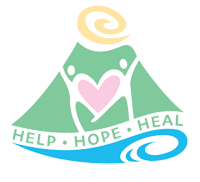Hawaii Concussion Management Awareness Program (HCAMP)
University of Hawaii at Manoa, College of Education, Department of Kinesiology and Rehabilitation Science
Project Funded by §321H-4 Neurotrauma Special Fund from August 2010 to August 2016
Project Goals
In collaboration with Hawaii Department of Education Athletic Health Care Trainers, the Hawaii Concussion Awareness and Management Program (HCAMP) set forth its mission to provide Hawaii’s high school athletic programs, physically active and medical communities with evidence-based research, education, support, and resources for managing concussions, and to standardize concussion management in Hawai‘i high schools. The goals for HCAMP include:
- Utilize Immediate Post-Concussion Assessment and Cognitive Test (ImPACT) for baseline and post injury neurocognitive testing;
- Provide a neuropsychologist to review all ImPACT post injury tests;
- Coordinate the management of a standardized Concussion Management Program (CMP) in the physically active and medical community; and
- Provide evidence-based concussion education and awareness to athletic trainers, coaches, health care professionals, parents, school personnel and students.
ImPACT
- The ImPACT is a computer based neuropsychological test that provides objective information on executive brain function such as memory, processing speed, and reaction time. Participating high school athletes usually take a baseline test during their freshman and junior year. If a concussion event occurs, a post-test is administered and compared to the individual’s baseline score. The test results are referred to a neuropsychologist for clinical interpretation. In the state of Hawaii, each year approximately 9,000 baseline tests and 1,600 post-tests are administered to high school student athletes.
Act 262, Hawaii Concussion Law
- Every state in the US has a concussion law. The Hawaii concussion law mandates three of the main components, consistent with other concussion laws in the US, including:
- Mandatory removal from play when a concussion is suspected.
- The athlete may not return to play unless medically cleared by a licensed health care provider.
- Requirement of annual concussion education for coaches, parents, athletes, officials, educators, and administrators.
- Two aspects that makes Hawaii’s concussion law unique include:
- The law applies to organizations that service youth 11 to 19 years old. Most states only apply the concussion law to high school athletes, but Hawaii’s concussion law applies to youth leagues, club teams, and youth organizations.
- Act 262 mandates baseline testing for all Hawaii high school student-athletes and ensures adherence to proper “Return-to-Play” protocols following a concussion or mTBI acquired during high school athletic activities.
Concussion Summit
- Annual continuing education summit to provide Hawaii’s physically active community and medical community with research-based evidence and discuss the pathophysiology of a concussion and techniques to assess and manage a concussion from initial injury to recovery, including return to learn, social interaction and mental health issue. Topics included best practices for schools and youth organizations to implement to help keep students and members safe.
- The Concussion Summit 2020 was held virtually for the first time due to the COVID-19 pandemic with over 400 attendees all over the U.S., Canada, and Japan. In 2021, HCAMP will hold its 12th annual Concussion Summit.
For more information on concussion management and the Concussion Summit, please visit Hawaii Concussion Awareness Management Program.

